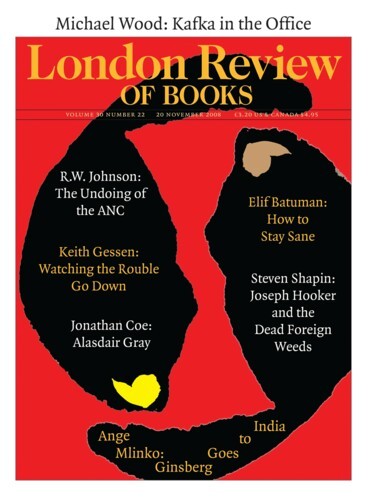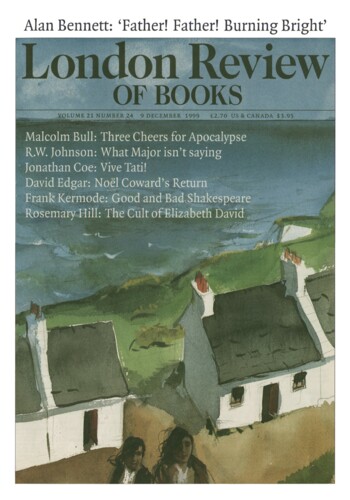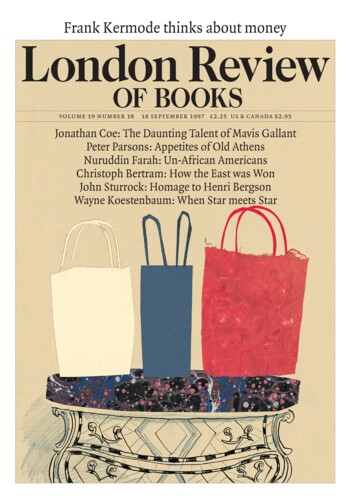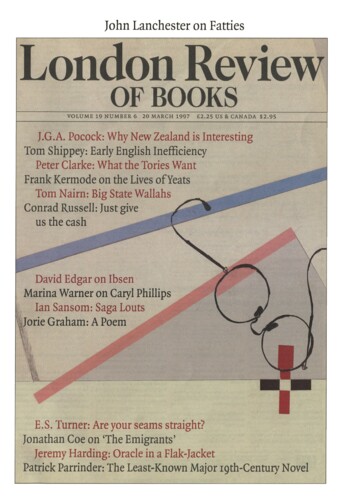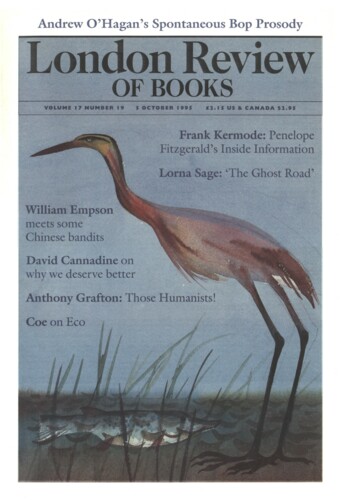Umberto Eco began formulating his theories of the ‘open’ and the ‘closed’ text in the late Fifties, and then more than twenty years later, with the publication of The Name of the Rose, he appeared to achieve the impossible, by proving that these two seemingly incompatible forms could in fact be reconciled. This was particularly good news for publishers, who suddenly found themselves dealing with a product which not only had solid highbrow credentials but was also able to shift units, as they say, in the international marketplace, and throughout the Eighties there was much talk of this fabulous hybrid called the ‘Euronovel’, of which the next memorable example was Patrick Süskind’s Perfume. The Last World, a short and cheerless fictionalisation of Ovid’s years in exile by the Austrian writer Christoph Ransmayr, was a best-seller throughout most of Europe while doing poorly in this country, but any thoughts that this lucrative sub-genre might have played itself out have been dispelled recently by the extraordinary success of Jostein Gaardner’s Sophie’s World, which with its dexterous combination of narrative interest and philosophical coating is the very model of a Euronovel.
Umberto Eco began formulating his theories of the ‘open’ and the ‘closed’ text in the late Fifties, and then more than twenty years later, with the publication of The Name...
